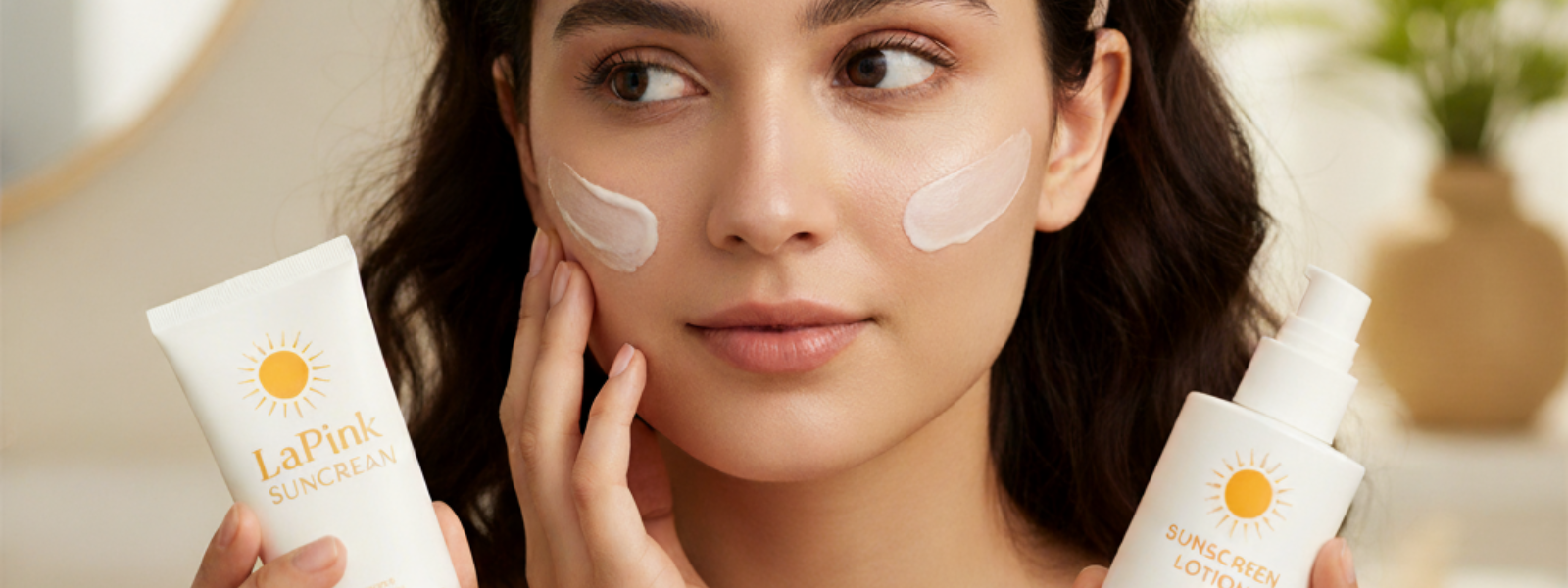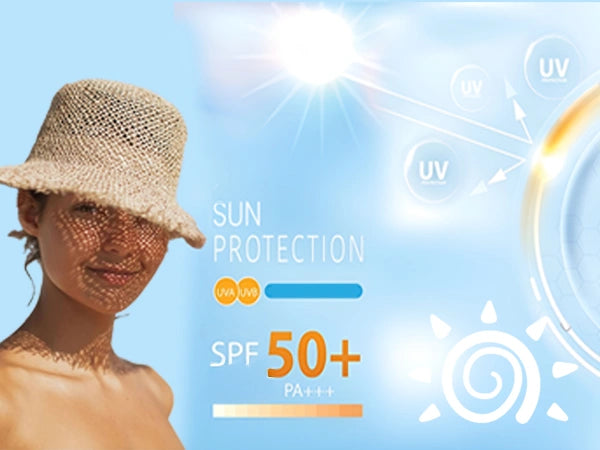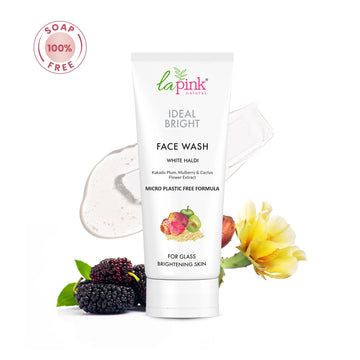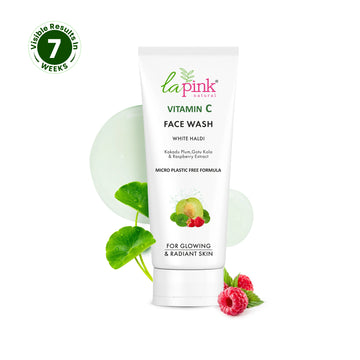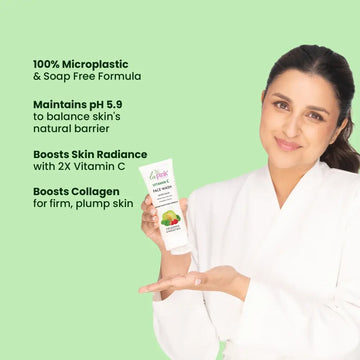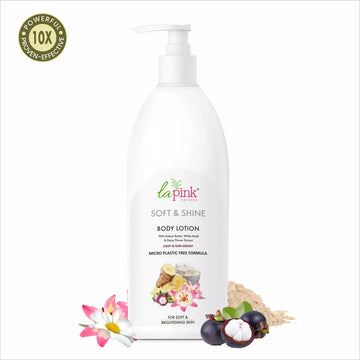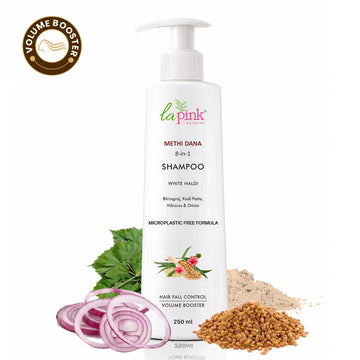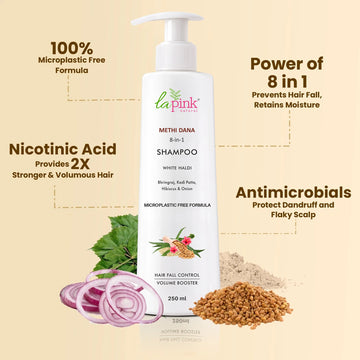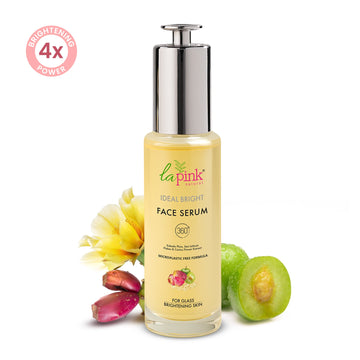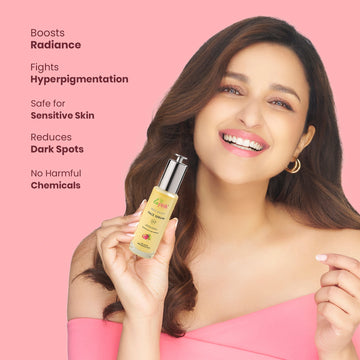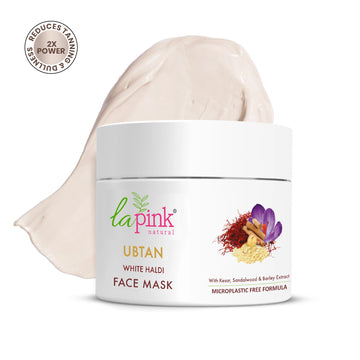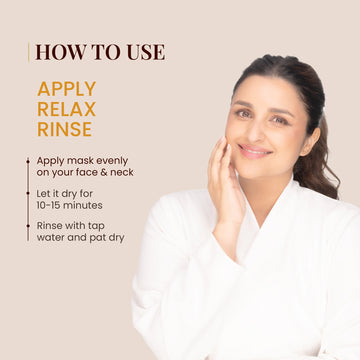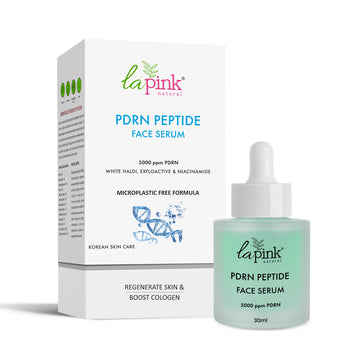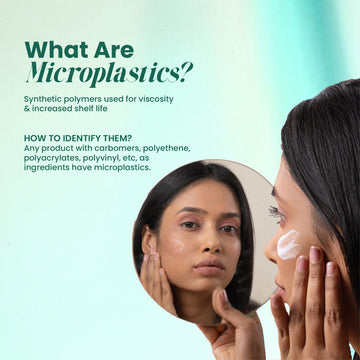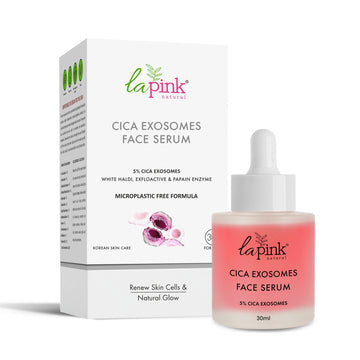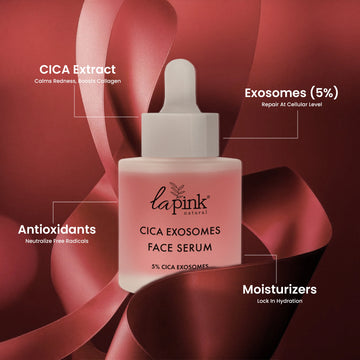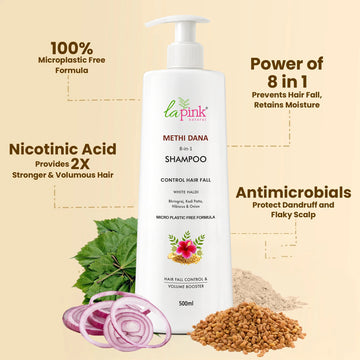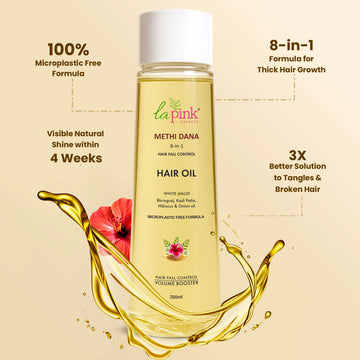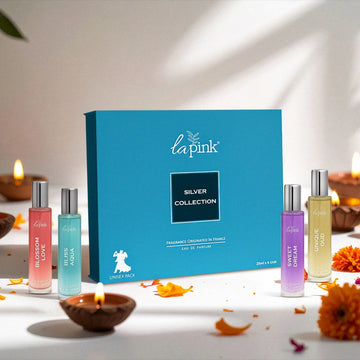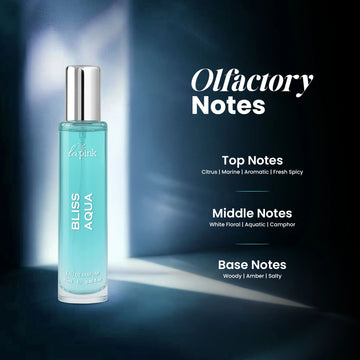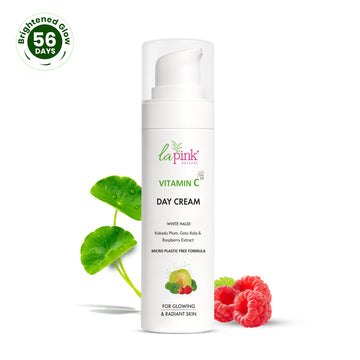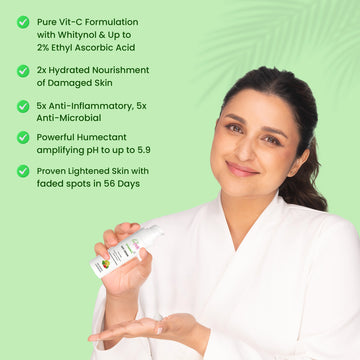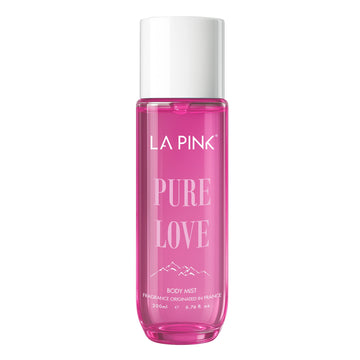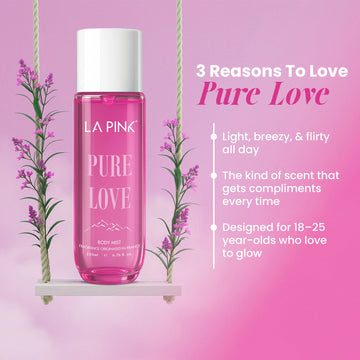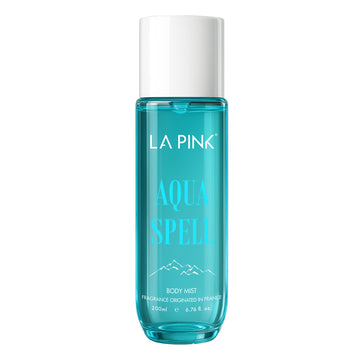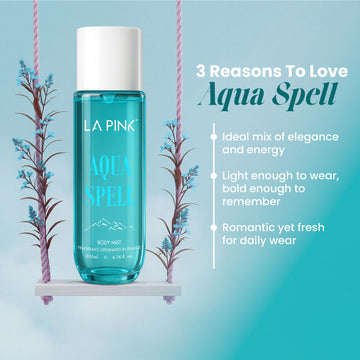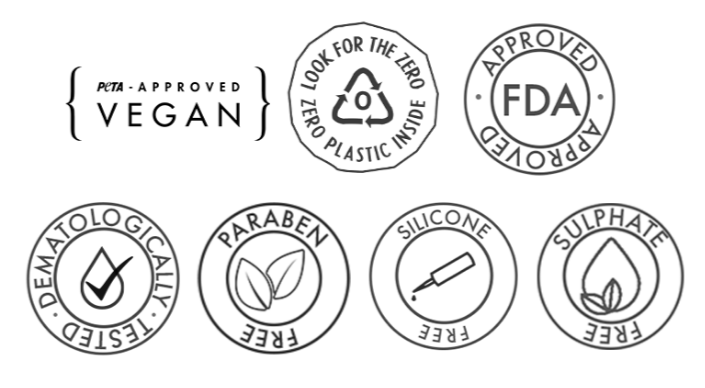Table of Contents:
Why Do Lips Need Sun Protection?
Sunscreen is a must when it comes to skincare. Harmful UV rays can harm your skin in several ways, including tanning, sunburn, premature aging, and even an increased risk of skin cancer, whether you're sitting by a window or walking outside in the sun. However, a lot of people are left wondering: Should I get a sunscreen lotion or a sunscreen cream for my face? This is because there are so many different types of sunscreen available. If you’re someone with oily or acne-prone skin, you might be searching for the Best Sunscreen Lotion with SPF 50 for Oily Skin, and LaPink offers promising options that combine high protection with lightweight comfort. This blog explores the key differences between sunscreen creams and lotions, how to choose the best one based on your skin type, and tips on proper sunscreen use
What’s the Real Difference Between Cream and Lotion Sunscreen?

Though both sunscreen lotions and sunscreen creams have the basic function of guarding your skin against harmful UVA and UVB rays, the distinction lies in their texture, composition, absorption rate, and ideal skin type compatibility. Let’s break down these differences in detail:
1. Texture & Consistency
Sunscreen Creams are richer and thicker in consistency. They tend to have a more heavily based formula with higher levels of oils and emollients, which assists in forming a protective barrier on the skin.
Sunscreen Lotions are more fluid and lighter. They usually have a higher water content, which makes it easier for them to spread and absorb into the skin more quickly without leaving a greasy residue.
2. Hydration & Moisturizing Capability
Creams are perfect for dry or sensitive skin since they not only protect your skin from the sun but also retain moisture deeply. Most cream products are loaded with moisturizing ingredients such as shea butter, ceramides, or hyaluronic acid.
Lotions provide gentle moisturization. They are less oily and more appropriate for oily skin or combination skin, as they do not add extra oil and will not leave a heavy residue.
3. Absorption Rate & Finish
Creams often take longer to absorb and can leave a slightly greasy or dewy finish, which can be problematic for people who wear makeup or live in hot, humid climates.
Lotions absorb quickly into the skin and typically leave a matte or semi-matte finish, making them perfect for everyday wear, especially for those prone to shine or sweat.
4. Target Use: Face vs Body
Sunscreen Creams are typically more concentrated and are best used on the face or specific areas where your skin might be drier, like the cheeks, neck, or under the eyes.
Lotions are usually developed for whole-body applications, including the face. Their watery texture makes them easy to apply to bigger surfaces such as arms, legs, and back.
5. Skin Type Suitability
- If you have dry or flaky skin, opt for a sunscreen for dry skin in a cream-based formula. These are rich in emollients that lock in moisture and provide a soothing, protective layer. Creams also help reduce irritation caused by dryness and offer longer-lasting hydration throughout the day.
- For those with oily skin or frequent breakouts, the best choice is a lightweight, non-comedogenic sunscreen for oily skin or sunscreen for acne-prone skin. Lotion-based sunscreens absorb quickly, feel light on the skin, and help control excess oil without clogging pores. They are ideal for hot and humid climates or as a base under makeup.
- If your skin is prone to redness, itching, or irritation, look for a sunscreen for sensitive skin with a gentle cream formulation. Fragrance-free and hypoallergenic options work best. Creams offer calming hydration and help build a stronger skin barrier against environmental stressors and UV rays.
- If you have both oily and dry areas on your face, consider alternating between creams and lotions based on the season or zone. Use sunscreen for oily skin (lotion) on the T-zone and sunscreen for dry skin (cream) on the cheeks or under eyes.
Sunscreen Cream vs Sunscreen Lotion: Quick Brainstorming
| Features | Sunscreen Cream | Sunscreen Lotion |
|---|---|---|
| Texture | Thick rich, | Light, Fluid |
| Best For | Dry, sensitive skin | Oily, acne-prone skin |
| Hydration Level | High | Moderate |
| Absorption | Slow | Fast |
| Finish | Dewy or greasy | Matte or Natural |
| Recommended Use | Face, dry patches | Face & body, daily wear |
La Pink’s Vitamin C Sunscreen: Non-Greasy, Glow-Enhancing Protection

Shield your skin from harsh UV rays while enhancing its natural glow with La Pink Vitamin C Sunscreen SPF 50 PA++++. This broad-spectrum sunscreen offers high protection against both UVA and UVB rays, preventing tanning, sunburn, dark spots, and early signs of aging. Infused with powerful Vitamin C and White Haldi, it not only protects but also works to brighten the skin and even out your complexion over time. Its lightweight, non-greasy texture absorbs quickly into the skin, making it perfect for daily use under makeup or alone. Formulated without harsh chemicals, it is a dermatologically tested sunscreen for oily skin, dry skin, sensitive skin, and acne-prone skin.
Key Benefits:
- SPF 50 & PA++++ for superior sun protection
- Enriched with Vitamin C for radiant, glowing skin
- Lightweight, non-sticky lotion texture
- Free from toxins, parabens, and sulfates
- Suitable sunscreen for all skin types
Sun Protection Meets Skincare: La Pink’s Ideal Bright SPF Lotion

Protect your skin every day with the ultra-light La Pink SPF 15 Body Lotion, designed to offer a broad-spectrum defense without weighing your skin down. Formulated especially for oily, acne-prone, and combination skin types, this lotion shields against harmful UVA & UVB rays while keeping your skin breathable and shine-free. Infused with skin-loving actives like 5% Niacinamide, it helps prevent tanning, dullness, and sun-induced pigmentation while promoting a more even and radiant skin tone. The fluid texture spreads easily, gets absorbed quickly, and doesn’t leave behind any white cast, making it ideal for use under makeup or on bare skin.
- SPF 15 sun protection with up to 95% sun protection
- Lightweight sunscreen lotion for oily skin
- Controls excess oil & keeps skin looking fresh
- Enriched with antioxidants, vitamins, and minerals
- Suitable for sensitive, acne-prone, and all skin types
- Free from parabens, sulfates, and harsh chemicals
FAQs
Q 1. Which is better for oily skin - sunscreen cream or lotion?
A sunscreen lotion is better for oily skin as it’s lightweight and non-greasy.
Q 2. Can I use sunscreen lotion on dry skin?
Yes, but sunscreen cream is more hydrating and better suited for dry skin.
Q 3. Is sunscreen cream good for sensitive skin?
Yes, especially if it’s fragrance-free and made with soothing ingredients.
Q 4. Can I switch between cream and lotion based on seasons?
Absolutely - use creams in winter and lotions in summer or as your skin changes.
Suggested Readings
Conclusion
Ultimately, whether you use a sunscreen lotion or cream is up to your skin's requirements. Creams provide maximum moisture, so they're perfect for dry and sensitive skin, whereas lotions are light in feel and suitable for oily or acne-prone skin. The best way to choose the right formula is to know your skin type. Whichever you select, daily sun defense will keep your skin healthy and glowing.


